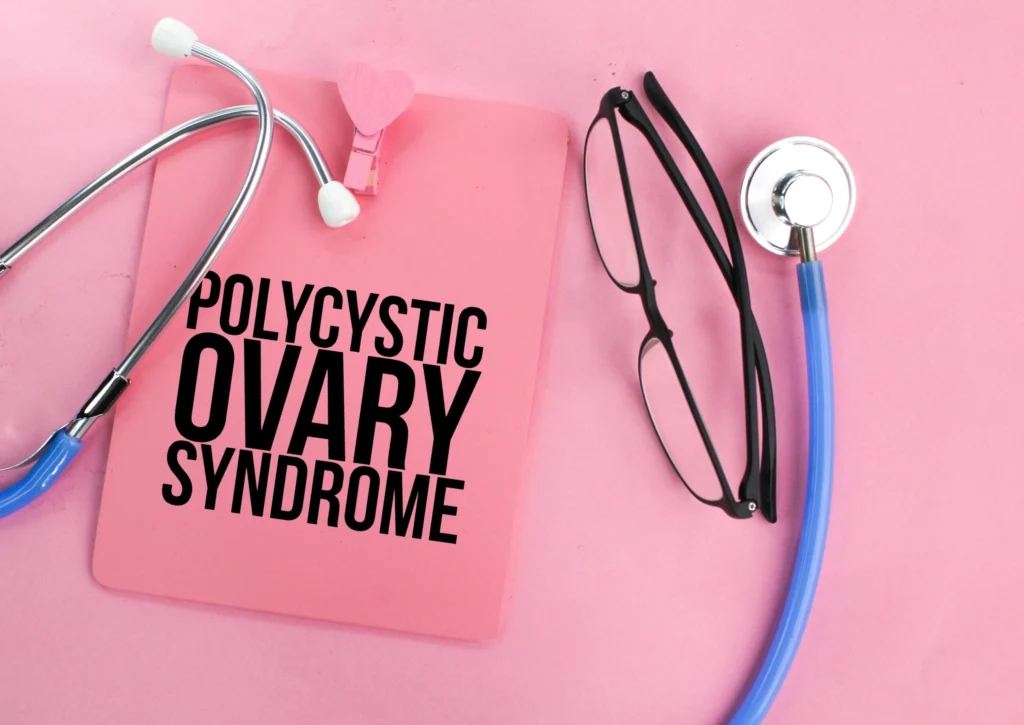Polycystic Ovary Syndrome (PCOS) is a common hormonal disorder that affects women of reproductive age. It occurs when the ovaries produce excess androgens (male hormones), leading to problems with ovulation, irregular menstrual cycles, and sometimes multiple small cysts on the ovaries. PCOS can affect a woman’s fertility, metabolism, and overall health, but it is manageable with the right care and support.

The exact cause of PCOS is not fully understood, but several factors are believed to contribute:
Hormonal imbalance: High levels of androgens interfere with the development and release of eggs during ovulation.
Insulin resistance: Many women with PCOS have difficulty using insulin effectively, which can lead to elevated insulin levels and increased androgen production.
Genetics: PCOS often runs in families, suggesting a genetic link.
Inflammation: Low-grade inflammation may also contribute to elevated androgen levels in some women.
Symptoms of PCOS can vary from person to person. Some of the most common include:
Not every woman with PCOS will have cysts on her ovaries, and not all ovarian cysts indicate PCOS.
There is no single test to diagnose PCOS. Doctors typically use a combination of the following:
A diagnosis is often made when a woman has at least two of the following: irregular periods, excess androgen levels, or polycystic ovaries on ultrasound.
While there’s no cure for PCOS, many effective treatments can help manage symptoms and reduce long-term health risks:
Lifestyle changes: A healthy diet, regular exercise, and weight management can improve insulin sensitivity and hormone balance.
Birth control pills: Can help regulate menstrual cycles, reduce androgen levels, and control acne and excess hair growth.
Medications for insulin resistance: Such as metformin, to improve insulin use and support regular ovulation.
Fertility treatments: For women trying to conceive, medications like clomiphene or letrozole can stimulate ovulation.
Hair and skin treatments: Options include laser hair removal, acne medications, and anti-androgen drugs.
PCOS is a lifelong condition that can affect both physical and emotional health, but with early diagnosis and a personalized treatment plan, symptoms can be effectively managed. If you experience signs of PCOS, speak with your healthcare provider to explore supportive treatment options and protect your long-term well-being.